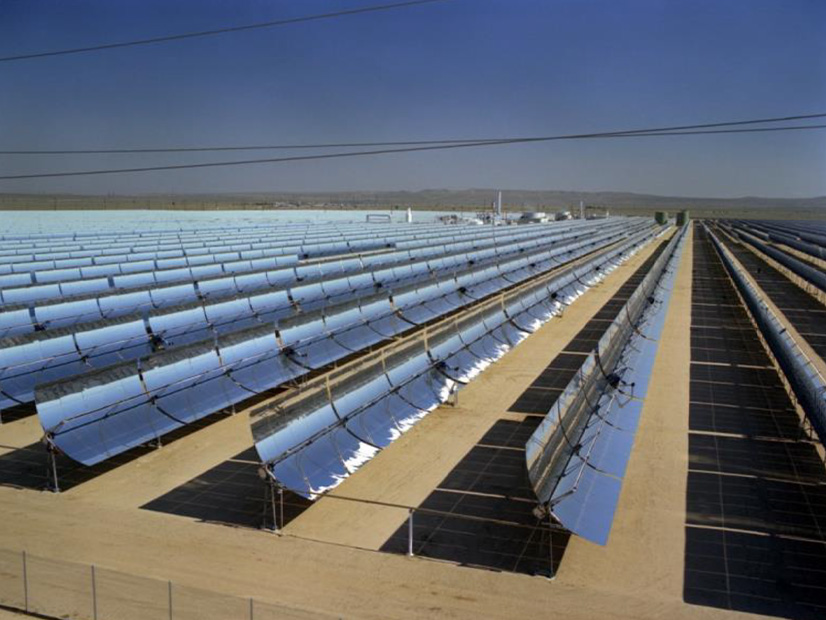FERC has approved a consent and stipulation agreement between its Office of Enforcement and the operators of two battery storage projects in CAISO imposing nearly $3.5 million in fines on the companies for submitting inaccurate initial state of charge values that led to undue bid cost recovery (BCR) payments (IN24-13).
Sonoran West Solar Holdings 1 and 2, owned by RE Crimson, agreed to disgorge the $2,473,265 in BCR payments they received from Oct. 1, 2022, through Feb. 17, 2023, and pay a $1 million civil penalty to the U.S. Treasury. The companies stipulated to the facts of Enforcement’s investigation but neither admitted nor denied any violations.
The Sonoran entities each operate a battery at the Crimson Battery Project in California’s Riverside County. Crimson 1 is a 200-MW/800-MWh battery, and Crimson 2 is 150 MW/600 MWh.
According to the CAISO tariff, if a battery submits a day-ahead bid at 10 a.m., it has the option to forecast its state of charge at the beginning of the next operating day, referred to as the battery’s “initial state of charge.”
Enforcement found that during the relevant period, the Sonoran entities frequently submitted biddable initial state of charge parameters to CAISO that reflected a value that was other than a “forecasted starting physical location,” or the state of charge the batteries were forecasted to hold at the start of the real-time market.
The companies submitted initial state of charge values indicating their batteries would be available to receive discharge awards at midnight and the early morning hours of the following day. On average, Crimson 1 and Crimson 2’s initial state of charge values were 480 MWh and 426 MWh higher, respectively, than their telemetered state of charge at midnight.
Additionally, on Oct. 24 and Nov. 28, 2022, and Jan. 14 and 15, 2023, the companies submitted outage cards with a maximum stored energy of 0 MWh, indicating that the battery needed to be fully discharged in advance of the outage. As a result, they received day-ahead awards to discharge to sell energy prior to the outages.
Because the day-ahead bids were at or near the CAISO bid cap of $1,000, the awards were uneconomic and resulted in BCR payments they would not have obtained if they had submitted accurate information. CAISO’s Department of Market Monitoring flagged the payments and, after department inquiries and Enforcement’s investigation began, the Sonoran entities began implementing processes to minimize future likelihood that initial state of charge and maximum stored energy for outages would be misreported.
Enforcement determined that the initial state of charge values submitted to CAISO during the relevant period were “false and misleading” because they did not reflect a forecasted physical starting location, nor the reasonably expected availability of its batteries at midnight.
The companies also will submit an annual compliance monitoring report to Enforcement for at least one year.
In its Dec. 5 order, FERC found “that the agreement is a fair and equitable resolution of the matters concerned and is in the public interest.” It directed CAISO to allocate the disgorged funds in its discretion for the benefit of ISO customers.
CAISO and stakeholders have been working over the past six months “to evolve existing bid cost recovery rules for energy storage resources to ensure fair and equitable treatment of these resources and reduce unwarranted bid cost recovery payments,” ISO spokesperson Anne Gonzales said.
The ISO is kicking off a new initiative Dec. 11 to continue addressing the issue.



